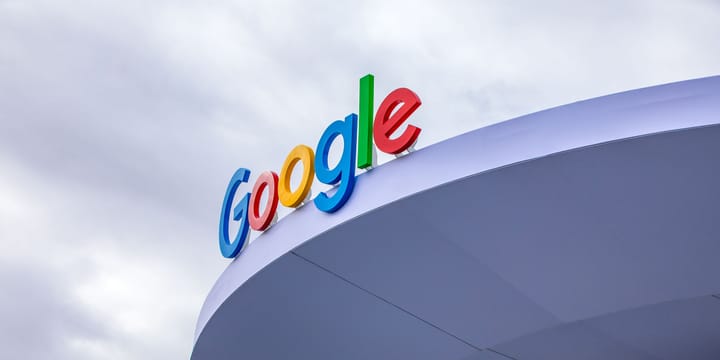Google, Meta Criticize Australia’s Rush to Ban Social Media for Kids Under 16
Google and Meta urge the Australian government to delay a proposed bill banning social media for children under 16, citing concerns over unclear age-verification requirements and potential impacts. Read on for details on the bill's proposed restrictions and industry response.

Google, Meta Urge Australia to Delay Controversial Social Media Ban for Children Under 16
In a move that has stirred debate, tech giants Google and Meta Platforms are calling for a delay in the Australian government's proposed legislation aimed at restricting social media access for children under the age of 16. The bill, which could impose some of the strictest regulations on children's use of social media in the world, is intended to protect minors from the potential harms of online engagement, but it has sparked concerns about its feasibility and impact. Here’s a breakdown of the key points surrounding the bill, its potential consequences, and the pushback from the tech industry.
The Proposed Social Media Ban Bill
The Australian government’s bill, introduced by Prime Minister Anthony Albanese’s centre-left administration, seeks to implement sweeping measures that would significantly curb social media access for children. Under the proposed legislation, social media platforms would be responsible for verifying the age of their users and ensuring that only individuals aged 16 or older can access their services. If passed, this law would place the onus of enforcing age verification on the companies themselves rather than on parents or children. This means that platforms like Facebook, Instagram, Google, and others could face significant fines for failing to ensure that users under 16 are kept off their services.
The bill also includes provisions for age-verification systems, such as biometrics or government-issued identification, to be implemented across all social media platforms. The penalties for non-compliance could amount to up to A$49.5 million (approximately $32 million) for companies that fail to meet the required standards.
Industry Concerns Over the Proposed Law
Despite the government's push to pass the bill before the end of the parliamentary year, Google and Meta are urging for a delay to allow more time for consultation and testing of the proposed age-verification systems. Both companies argue that the legislation, as it stands, lacks clarity and would be difficult to implement without first testing these verification systems on a broader scale.
Meta, which owns Facebook and Instagram, highlighted that without the results of an age-verification trial, neither the government nor the tech industry would fully understand the scope of the requirements for enforcing such a law. The company also raised concerns that the bill, in its current form, is "inconsistent and ineffective."
The call for a delay is largely focused on the need for more thorough research to understand the potential consequences of the bill, as well as the feasibility of its age-verification methods. Meta’s statement underscores that until these systems are trialed and proven to be effective, moving forward with the bill could lead to unanticipated complications.
Uncertainty Around the Impact of the Bill
The bill has also drawn attention from other social media platforms, including TikTok, which expressed "significant concerns" over the government's decision to rush the bill through without sufficient consultation with key stakeholders. TikTok, owned by ByteDance, argued that the bill lacks clarity and risks undermining freedom of expression and access to information for young people. These concerns echo those raised by other critics of the bill, including Elon Musk’s X (formerly Twitter), who has warned that the legislation could have negative implications for the human rights of children and young people.
X’s position aligns with Musk's broader philosophy on internet freedom and free speech, as he has publicly criticized various government-led initiatives that aim to regulate digital platforms. The billionaire tech mogul’s criticism of the bill comes from his belief that it could be a way for the government to gain more control over the internet under the guise of child protection.
The Government’s Stance and Political Support
The Australian government, however, remains firm in its intention to pass the bill. Prime Minister Albanese’s administration argues that these measures are necessary to protect children from the dangers of social media, such as cyberbullying, exploitation, and exposure to inappropriate content. The government also points out that the bill is part of a broader initiative to create safer online environments for young people, emphasizing the importance of responsible digital engagement.
Despite the pushback from tech companies, the bill has garnered support from the opposition Liberal party, which has signaled its willingness to back the proposed legislation. Some independent lawmakers, however, have voiced concerns that the government is rushing the process, noting that the bill was introduced with minimal time for public consultation. A Senate committee that oversees communications legislation is expected to submit a report on the matter soon, which could influence the government's approach.
The Path Ahead: What’s Next for the Bill?
With the legislative process moving quickly, all eyes are now on whether the government will proceed with the bill or heed calls for further consultation. If the bill is approved, it would represent a major shift in the way social media platforms are required to manage user access, particularly when it comes to protecting minors. However, the proposed age-verification requirements could also result in significant changes for users across Australia, potentially altering the online experience for millions.
The involvement of an external labor economist and a focus on age verification are seen as crucial elements in addressing the concerns raised by tech companies. However, the companies involved are pushing for further research and testing before the law is implemented, arguing that rushing such an important change could lead to unintended consequences.
Conclusion: Balancing Safety and Freedom
As the debate over the proposed social media ban for children continues, it is clear that finding a balance between protecting young people online and



